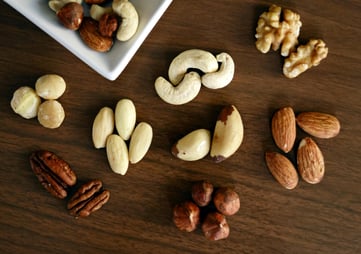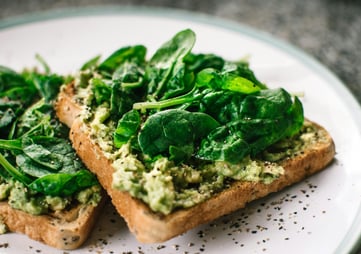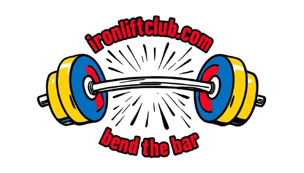The Effects of Vitamins on Sports Performance
This article provides brief insights into each vitamin and its impact on sports performance. In the future, I will write comprehensive articles that delve into the effects of each vitamin on overall health, featuring in-depth scientific research and covering every detail about each vitamin.
SUPPLAMENTLERÖNE ÇIKAN
Yigit Orsoglu
3/28/20253 min read
Introduction
Vitamins are organic compounds that are vital for the body’s energy production, muscle functions, immune system, and overall health. For athletes, sufficient and balanced vitamin intake is crucial for enhancing performance and accelerating recovery processes after exercise. Vitamins are categorized into two groups based on their solubility: fat-soluble (A, D, E, K) and water-soluble (B group and vitamin C).
While it is always better to obtain these from food, there are times when we may fall short of meeting the necessary vitamin requirements. In such cases, whether you are an athlete or not, supplementing these vitamins externally becomes essential to maintain bodily functions.
Fat-Soluble Vitamins


Vitamin A
Vitamin A is a vitamin that supports many vital functions, including vision, the immune system, and cell growth. It can be found in forms such as retinol and beta-carotene.
Benefits: Supports vision functions, strengthens the immune system, and plays a role in tissue repair.
Impact on Sports Performance: By supporting tissue repair, it can speed up post-workout recovery.


Foods Contains Vitamin A
Carrot
Sweet Patato
Zucchini
Spinach
Red Pepper
Egg
Kale
DairyProducts
Group B Vitamins
B vitamins play critical roles in energy metabolism and are of great importance to athletes; they optimize energy production, enhance endurance, and reduce fatigue.
B1 (Thiamine): Supports carbohydrate metabolism and contributes to energy production.
Whole grains
Legumes
Sunflower seed
Dairy products
Egg
Green leaf vegs.
B2 (Riboflavin): Plays a role in energy production and exhibits antioxidant properties.
B3 (Niasin): Plays a role in fat, protein, and carbohydrate metabolism, supporting energy production.
B6 (Piridoksin): Plays a significant role in protein and amino acid metabolism and contributes to hemoglobin production.
Chicken
Peanut
Brown rice
Mushroom
Beef
Fish
Dairy products
Egg
Banana
Patato
Turkey meat
Walnut
Folat (B9): Plays a role in DNA synthesis and repair, supporting the production of red blood cells.
B12 (Kobalamin): Essential for nervous system functions and the production of red blood cells.
Spinach
Lentil
Asparagus
Orange
Water-Soluble Vitamins
Vitamin D
It regulates the balance of calcium and phosphorus in the body and supports bone health. It also plays a crucial role in the immune system. Its deficiency can lead to bone weakness, while an excess can cause toxic effects.
Benefits: Enhances bone health by increasing calcium and phosphorus absorption, and improves immune functions.
Impact on Sports Performance: Improves muscle functions and increases bone density, reducing the risk of injuries.
Foods Contains Vitamin D
Sunlight
Salmon
Tuna
Egg


Vitamin E
Vitamin E is a powerful antioxidant that protects cells from damage caused by free radicals. It also contributes to skin and eye health. Its excess can increase the risk of bleeding.
Benefits: As a strong antioxidant, it protects cell membranes from damage caused by free radicals.
Impact on Sports Performance: By reducing oxidative stress that occurs during exercise, it can minimize muscle fatigue and damage.


Foods Contains Vitamin E
Almond
Hazelnuts
Avacado
Salmon
Spinach
Sunflower's oil and seed
Vitamin K
Vitamin K plays a critical role in blood clotting and strengthening bones. While its deficiency can lead to bleeding issues, an excess typically does not cause serious problems.
Benefits: It is essential for blood clotting and bone metabolism.
Impact on Sports Performance: By supporting bone health, it can enhance endurance and reduce the risk of injuries.
Foods Contains Vitamin K
Spinach
Broccoli
Kale
Green tea
Soy been
Pumpkin


Vitamin C
Vitamin C is a powerful antioxidant that supports the immune system. It is also essential for skin health, wound healing, and the absorption of iron in the body. Its deficiency can lead to a disease called scurvy, while excess intake typically results in mild digestive issues.
Benefits: Acts as a strong antioxidant, boosts the immune system, and enhances iron absorption.
Impact on Sports Performance: By reducing oxidative stress during exercise, it can accelerate recovery and lower the risk of infections
Foods Contains Vitamin C
Orange
Strawberry
Pepper
Broccoli
Leek
Kale
Kiwi


Just like with everything, an excess of vitamins can also be harmful to our bodies. With a balanced diet, these vitamins can be obtained naturally or through supplements. However, especially for individuals who engage in intense physical activity or those who cannot consume certain foods sufficiently, supplementation may become absolutely necessary. Therefore, it is important to adjust your diet according to your needs and use supplements consciously when required.
